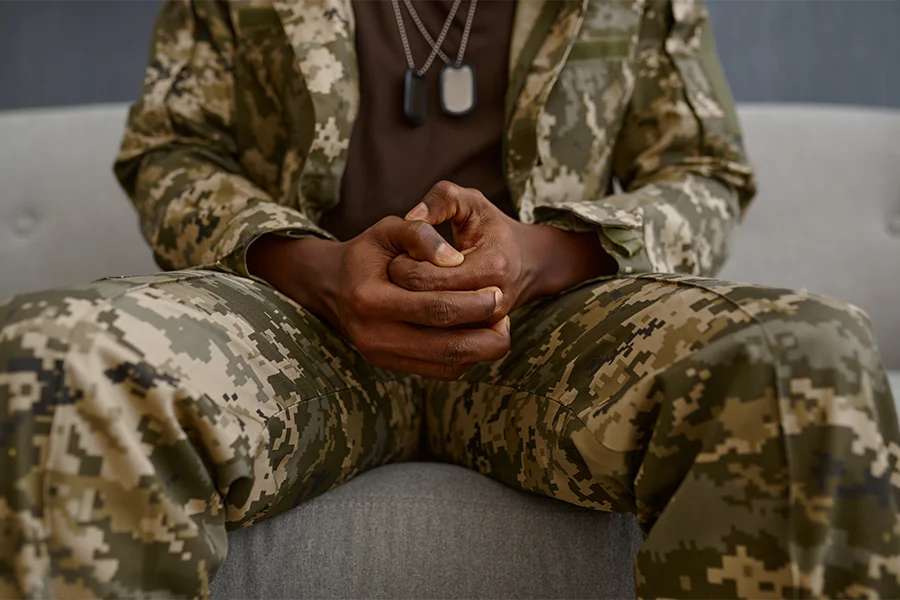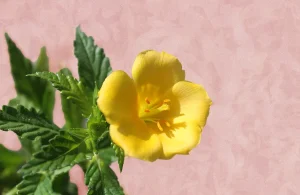Military combat veterans with traumatic brain injuries (TBI) saw “dramatic” and “life-changing” improvements in their symptoms and cognitive functioning immediately after receiving treatment with the psychedelic ibogaine, new research shows.
Stanford University researchers behind the study, which was published in the journal Nature Medicine last week, followed 30 veterans who were functionally disabled from symptoms of TBI such as post-traumatic stress, depression and anxiety and who had a history of repeated blast or combat exposures.
The team, which collaboration with the foundation VETS, Inc., assessed the veterans before and after they visited a clinic in Mexico to receive ibogaine treatment, and they identified profound changes in the participants’ mental health, with minimal side effects.
Prior to the treatment, the veterans each met the criteria for clinically significant levels of disability. Twenty-three had diagnosable PTSD, 14 had anxiety disorder, 15 had alcohol use disorder and 19 had been suicidal at some point in their lifetimes.
After receiving ibogaine, in addition to magnesium to protect against potential heart-related complications, there was an immediate “remarkable reduction” in symptoms, “with large effect sizes” that sustained over time.
READ: Ibogaine and Iboga: Traditional Use, Conservation, and Ethical Considerations
Ibogaine “resulted in significant improvements in functioning both immediately and 1 month after treatment and in PTSD, depression and anxiety at 1 month after treatment. There were no unexpected or serious adverse events.”
After a month, the veterans’ average disability rating plummeted from 30.2 to 5.1, no longer qualifying as being disabled. They also saw an average reduction of 88 percent in symptoms of PTSD, 87 percent in depression and 81 percent in anxiety. Further, cognitive assessments shows improvements in “concentration, information processing, memory and impulsivity.”
How to Grow Shrooms Bundle
Take Both of Our Courses and Save $90!
“No other drug has ever been able to alleviate the functional and neuropsychiatric symptoms of traumatic brain injury,” Nolan Williams, an associate professor of psychiatry and behavioral sciences at Stanford, said in a press release. “The results are dramatic, and we intend to study this compound further.”
The reason that the veterans had to visit Mexico is because ibogaine is classified as a Schedule I controlled substance in the U.S., though interest in exploring the psychedelic’s therapeutic potential has greatly expanded in recent years.
Ibogaine “could be a powerful therapeutic for the transdiagnostic psychiatric symptoms that can emerge after TBI and repeated exposure to blasts and combat, including suicidality.”
“These men were incredibly intelligent, high-performing individuals who experienced life-altering functional disability from TBI during their time in combat,” Williams said. “They were all willing to try most anything that they thought might help them get their lives back.”
The Stanford team is planning to build on the initial findings, including possibly incorporating brain scans to better understand how the psychedelic affects cognition.
“In addition to treating TBI, I think this may emerge as a broader neuro-rehab drug,” Williams said. “I think it targets a whole host of different brain areas and can help us better understand how to treat other forms of PTSD, anxiety and depression that aren’t necessarily linked to TBI.”
READ: Most Iboga Is Poached Illegally, Gabonese Forests and People are Paying the Price
“This is possibly the first study to report evidence for a single treatment with a drug that can improve chronic disability related to repeated TBI from combat/blast exposures.”
In response to the increased demand for research, the Drug Enforcement Administration (DEA) has proposed a dramatic escalation in the production quota for ibogaine and other psychedelic compounds in 2024.
In another major milestone, the U.S. Department of Veterans Affairs (VA) recently issued a request for applications to conduct in-depth research on the use of the psychedelics psilocybin and MDMA to treat PTSD and depression.
A recent survey of veterans and active military respondents showed that two thirds (64 percent) supported allowing VA doctors to legally recommend psychedelics.
In November of last year, lawmakers in a U.S. House subcommittee met for a first-ever congressional hearing on psychedelics, with the panel focusing on how substances like psilocybin and MDMA can aid therapy for military veterans’ facing mental health challenges.
Meanwhile, a psychedelics-focused drug development company has formally asked the Food and Drug Administration (FDA) to review an application to approve MDMA as a prescription medication for the treatment of PTSD after identifying compelling results from a Phase 3 clinical trial.
*This article was originally published by Marijuana Moment.

DoubleBlind is a trusted resource for news, evidence-based education, and reporting on psychedelics. We work with leading medical professionals, scientific researchers, journalists, mycologists, indigenous stewards, and cultural pioneers. Read about our editorial policy and fact-checking process here.

DoubleBlind Magazine does not encourage or condone any illegal activities, including but not limited to the use of illegal substances. We do not provide mental health, clinical, or medical services. We are not a substitute for medical, psychological, or psychiatric diagnosis, treatment, or advice. If you are in a crisis or if you or any other person may be in danger or experiencing a mental health emergency, immediately call 911 or your local emergency resources. If you are considering suicide, please call 988 to connect with the National Suicide Prevention Lifeline.



